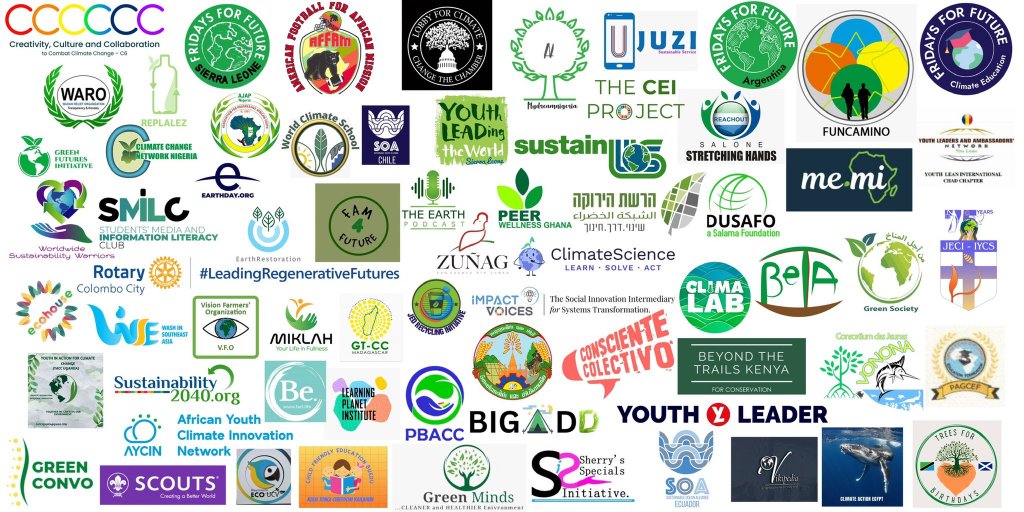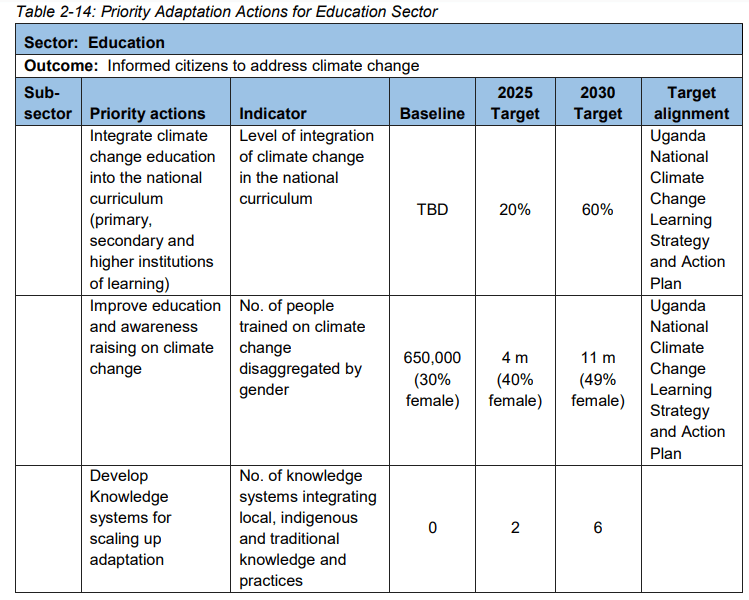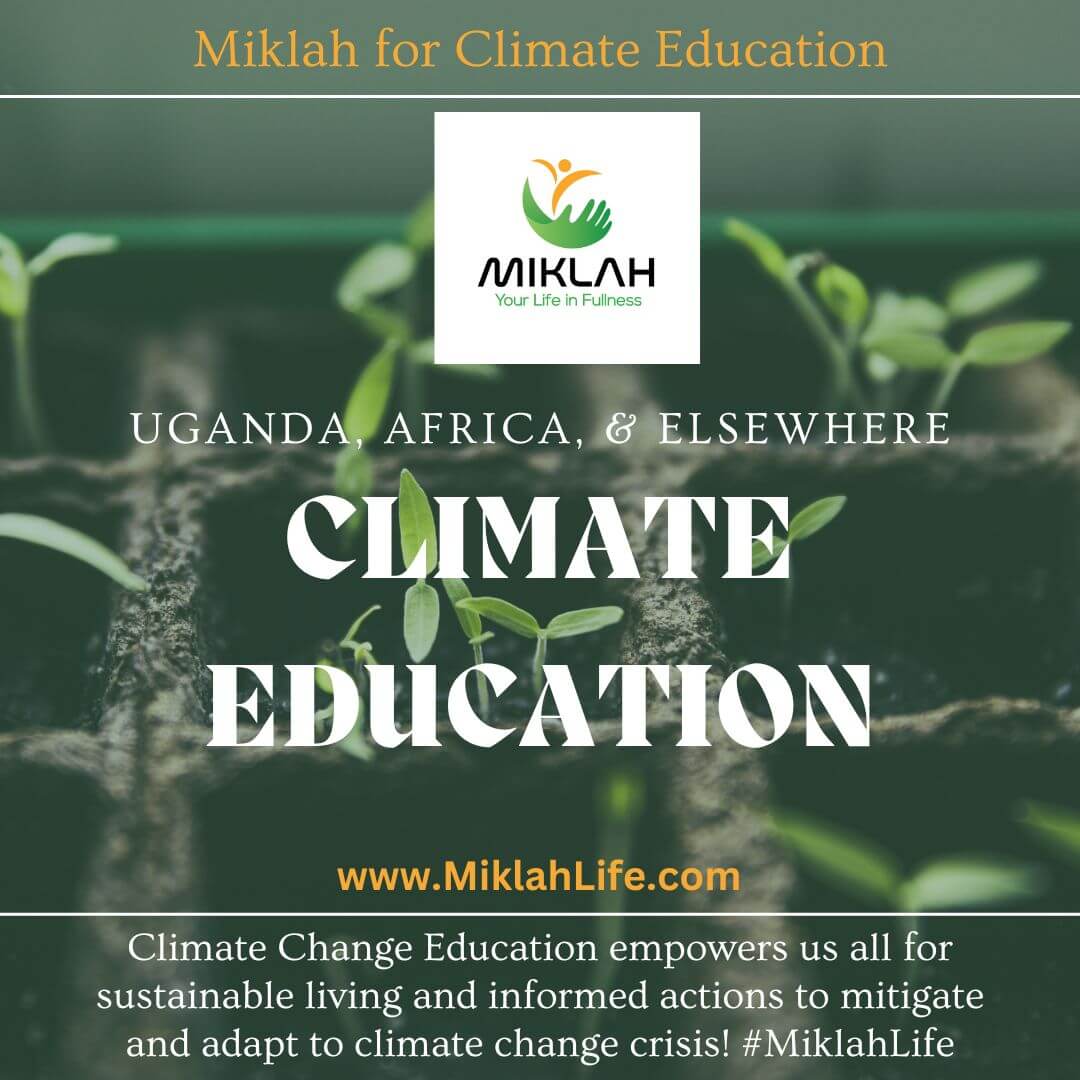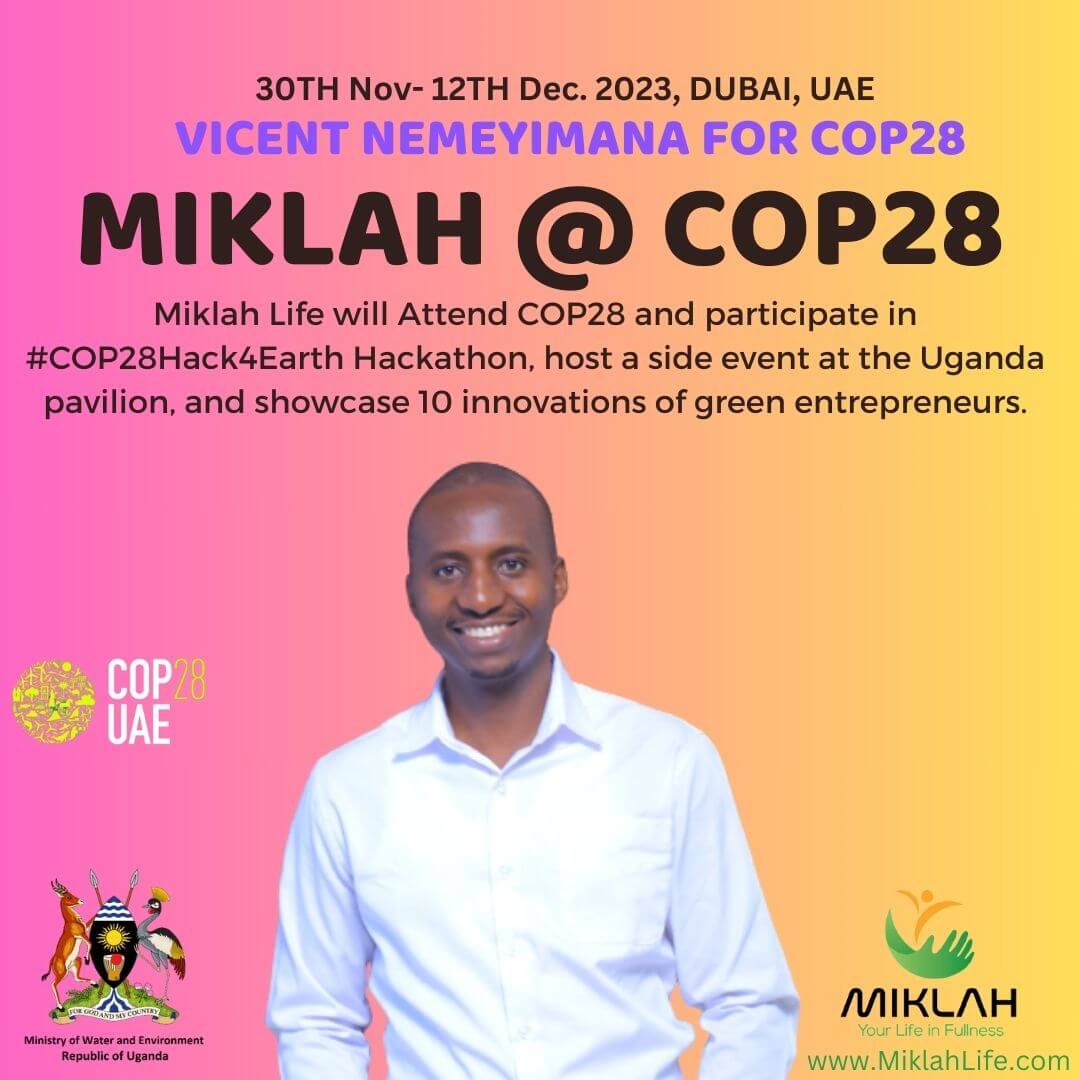Climate Education Status in Uganda, Africa, & Elsewhere: What is Miklah Doing about it?
Climate education or climate change education (CCE) is one of the critical education types in this 21st century, for issues of climate change are really making headlines. However, you would love to know why the wave? Explore this with me!
On 10th November 2022, during COP27 5th Day in Egypt, Miklah Life gladly stood up with more than 100 organizations and individuals and launched the climate education coalition, marking the beginning of the formal push for climate education in all schools and everywhere across the globe.

But you would want to know the state of climate education in Uganda or there where you are before we push for it. And, anyway, is it that necessary? Let’s explore this!
What is Climate Education?
A 2017 paper by Stevenson and colleagues explored climate change education in Australia and defined climate education as “learning in the face of risk, uncertainty and rapid change” (Stevenson et al., 2017). But learning what? While the definition is surely lacking in terms of specificity, it places emphasis on something; uncertainty, not being sure of what’s coming next.
Indeed, the authors note that we ‘can no longer promise young people a stable atmosphere in their lifetimes’. Do you get that?
Well, from the above, it seems, climate education or climate change education is about equipping people, young and old, with information, knowledge, and skills regarding these uncertainties, and what to be or do about them!
According to UNFCCC, Climate education can be both formal and informal. Informal climate education is through individuals and organizations around the globe who are committing to sharing information and developments in climate change crisis. Formal education can be through schools or established formal systems of education in communities and countries.
The state of formal & informal climate education

Well, for informal climate education, we can’t say much, for it’s already happening (though it also needs scaling). However, Governments have really not considered climate education in their formal education systems. In fact, most governments, including all the 197 or more UN members rarely have climate education incorporated in their national education systems.
According to Ellerbeck (2022) at World Economic Forum, despite the growing anxiety of climate crisis among young people, few countries are taking climate education serious. In fact, according to analysis of Nationally Determined Contributions (NDCs) from 95 countries, none mentions making climate education a part of formal education system. Only 24% mention of educating young people about climate change. The rest don’t even mention it!
A team of researchers explored formal climate education in Belgium and found out that more than 60% of courses at various universities didn’t include climate education. A few isolated courses in science departments (5%) contained anything to do with climate change. And that is Belgium.
Back to the World Economic Forum, the author seems to credit developing nations over developed ones when it comes to taking climate change education (CCE) serious. For example, he says that countries like Cambodia, Dominican Republic, and Colombia are moving faster on climate education than the top 20 wealthiest countries (also top emitters) are doing! Well, the report he cites is of 2021. Maybe things have changed, in just one year, lol!
Climate Education in Africa
For Africa and my Uganda in particular, climate education is largely informal, different organizations and climate activists throwing information here and there.
In fact, the Afrobarometer survey of climate literacy in Africa reported an average of 37% literacy level compared to the more than 80% in Europe and USA. Broken down data revealed that climate literacy was lowest in Tunisia (23%) and Mozambique (25%) and a little better in Mauritius (66%) and Uganda (62%).
More about Uganda, according to the country’s updated Nationally Determined Contributions (NDCs), there is a plan to incorporate climate education into the formal education system, from primary up to university levels.

The plan shows that by 2025, 20% of learners should have accessed this education, and 60% by 2030. What we can do as #MiklahLife and #ClimateEducationCoalition is simply to facilitate this transition, make it faster, and achieve higher targets than anticipated. Otherwise, Uganda becomes one of the few that not only mention climate education in their NDCs but also plan to formalize it within the broad education system. Well, for Uganda, I say, Kudos!
Back to the survey, it reveals that education was a positive influence for climate education. Note that Uganda’s literacy levels stand at about 76% and Mauritius has achieved literacy levels of 95%.
Unfortunately, females (or women) were less literate than males when it came to climate education (by about 12.8% less). The poor, the uneducated, and females had lower literacy levels than their counterparts! These are sad inequalities.
A question pops up; What factors make women less likely to know about climate change and yet they are the most affected by climate-related disasters? A crazy world! This is a discussion for another day!
The bottomline: Climate Education is a key!
As the world chokes on the dangers of climate change crisis, and global leaders and communities go into panic, trying to figure out mitigation and adaptation measures, climate education becomes even more critical. Education provides us with information upon which to make better and inclusive decisions. It empowers everyone, pushing us all towards sustainable actions. And this becomes even better when this education is formalized. According to UN Climate Change expert, Maria Laura;
“Formal education should give people an adequate understanding of climate change, the environment and how to live and act more sustainably. They will then be equipped with the knowledge, skills and attitudes required to take action, live more sustainably, change patterns of consumption and production and participate effectively in policy-making to promote low-emission, climate-resilient societies and sustainable development.”
And for the above critical position it holds, we here at #MiklahLife, together with everyone else at #ClimateEducationCoalition, are championing #ClimateEducation in all areas of life, and calling on all governments to see it get incorporated into national educaton systems.
Interested in Approaching climate change as an entrepreneur? Join our Sacred Entrepreneurship Program!
Thank you everyone. Thank you.




Winnie
February 18, 2023Hey, I love this work. It is so cool. THanks
Vicent Nemeyimana
May 14, 2024Thanks for reading through